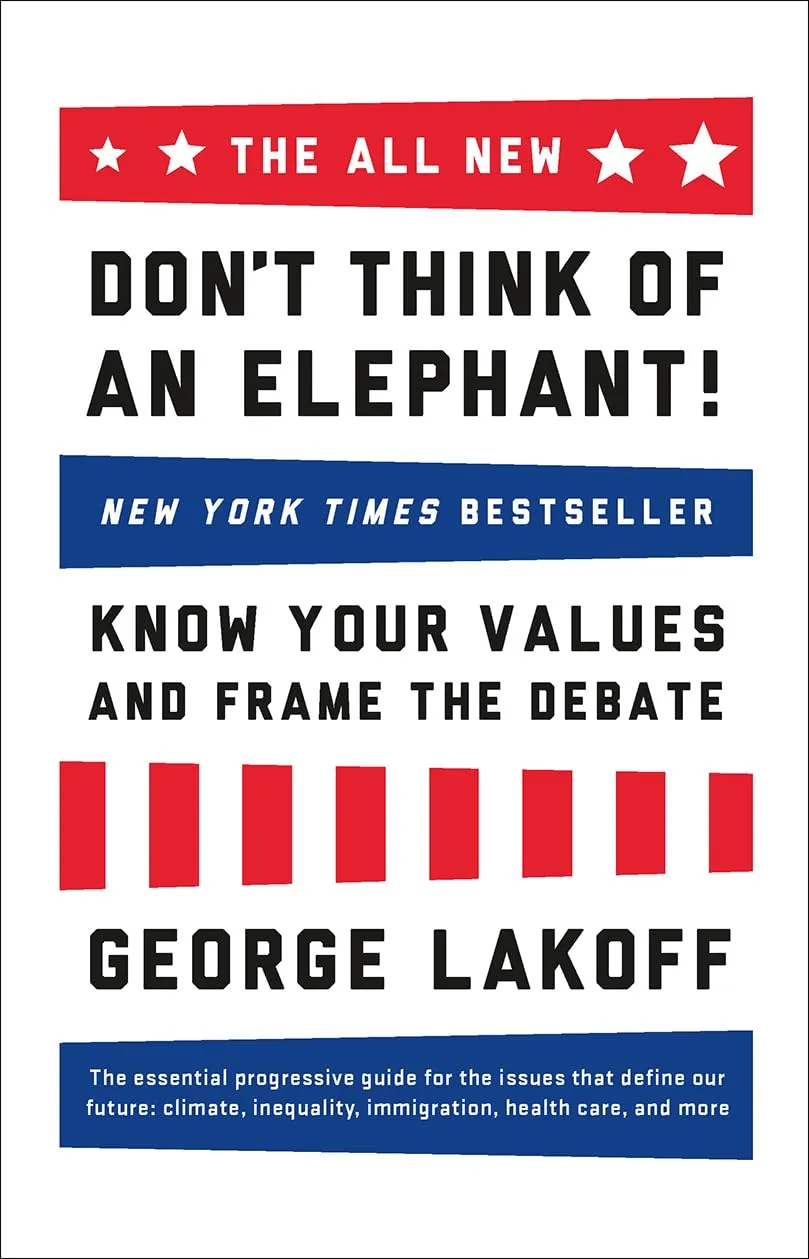Reveals how conservatives have dominated political debates by framing the language used in discussions, and how progressives can counter by understanding and employing their own frames effectively. At analysis focuses on the role of language in shaping public opinion. It offers practical advice for reframing political discourse, making it a must-read for anyone interested in the dynamics of political communication. The book is both an insightful analysis and a practical guide for navigating political conversations.

In "The All New Don't Think of an Elephant: Know Your Values and Frame the Debate" George Lakoff demonstrates how the clever use of keywords, repetition, mental images, and a focus on citizens' core values can significantly influence their voting behavior.
The author examines the role of language in political debate. A main focus of his book is on how politicians' phrasing is used to pursue a specific agenda and influence public thought. Lakoff explains how language shapes our thinking and understanding. Especially in times of potential political upheaval and the success of far-right parties in Europe and Austria, this topic is more relevant than ever.
The book, written with a focus on the political situation in the USA, thus emphasizes the differences between Conservatives (Republicans) and, in the American sense, Liberals (Democrats). The author distinguishes two fundamentally different value systems, which he metaphorically represents as family models:
"Strict Father Families" are the conservative thought model with a strong focus on morality and the resulting strength and security. This morality can only be achieved through obedience to the strong and wise father who protects his family from the dangers of a world clearly divided into good and evil.
"Nurturing Families" are the liberal thought model. In this model, both parents take more care of the children, raising them with empathy and fewer strict rules. Trust and cooperation, as well as personal freedoms and equality of opportunity, are important here.
Lakoff believes that most people can apply both value models in different life situations. For politicians, it is crucial to get potential voters to adopt the model that is advantageous for them, especially in the political arena.
After discussing these two models, the author shows how Republicans in the USA have been successfully communicating with their frame of "strict father families" for decades. They deliberately use terms that activate the mental model, repeatedly use these terms, and thus create a connection between an idea and a trigger word.
This way, they dominate discussions with terms that activate their mental model in listeners each time. Even when a Democrat argues against it in content, they often use the terms framed by the Republicans, thus unconsciously normalizing their position.
For example, the use of the word "tax relief" for a reduction of taxes. By using the word "relief," a positive frame is given. This wording was communicated like a mantra until Democrats and liberal media also used the term "tax relief," making it much harder to argue against than alternative terms like "tax cuts".
Such consistent framing has led to spectacular Republican successes, even with political topics that are often not supported by the majority. The author elaborates in detail on how framing and political communication work. He also points out how, in his opinion, Democrats should respond.
Personally, I find that the insights can be very useful: For instance, in Austria, we primarily use the term "climate change" instead of alternatives like "climate crisis" or at least "global warming". This reduces the perceived urgency and associates it less with negative feelings. In contrast, terms like "refugee wave" are used for migration instead of a more neutral term.
"The All New Don't Think of an Elephant" by George Lakoff is highly recommended, as the insights are relevant in Europe and beyond politics. The book is particularly relevant for those who are politically active or interested in political communication. Although Lakoff is a convinced Democrat, he manages to analyze communication clearly and relatively neutrally.
